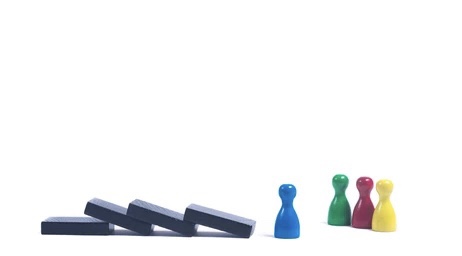
WHY PLAYING THE BLAME GAME WILL GET YOU NOWHERE
How do you know when you are a MVP in the blame game? I should start with this question. Why did the project go south? The team sucks, the weather did not help, the contractors were incompetent, plus the vendors did not arrive early. The customers too were unrealistic, rude, and felt entitled. If that is your answer, you may be that MVP. Everyone, excluding you gets a fair share of the blame. I always say this to my colleagues. Even when we think we are right all the time and others are always wrong, we need to look within.
Playing the blame game is common behaviour among people who struggle with taking responsibility for their actions or outcomes. It is the tendency to blame other people, external factors for failures or shortcomings while avoiding addressing their own flaws or limitations. The problem is that, keeping up with such trait will get us nowhere or stuck in the future.
If the habit of blaming others continues, it only creates animosity and resentment towards the people we hold responsible. And you will never get to the root of the problem let alone make progress. Even when you know your onions. Peter Drucker once said in his article titled “Managing oneself”, that when a brilliant mind’s work fails repeatedly when it is time for collaboration, the brilliant mind needs to look within. Otherwise, blaming others will continue which can lead to self-doubt and a lack of confidence.
The real problem with the blame game is that it prevents us from taking responsibility for our actions. When we constantly blame others, we are saying that we have no control over our lives. We become passive observers in our own lives, waiting for someone else to fix our problems. Maybe that brilliant mind I shared the example earlier just needed to invest more time in mastering emotional intelligence, foster camaraderie or even exercise more patience, ensuring there is enough clarity within the group before embarking on the next project.
So, what can we do instead of playing the blame game? Here are some tips:
- Take responsibility for our actions: Instead of blaming others, we need to take ownership of our mistakes and failures. That we recognize we have the power to change our situation and take action. This is obvious, isn’t it?
- Learn from our mistakes: Instead of blaming others and dwelling on mistakes that can hinder our ability to learn and improve ourselves. When we constantly shift the blame, we miss the opportunities for growth and self-awareness.
- Focus on solutions: Switch our focus to the possible solution to the problem. We should brainstorm diverse ways to approach the problem and choose the best solution available to us.
- Practice empathy: Instead of blaming others, we try to understand their perspective. Empathy can help us build stronger relationships and find common ground. What I have found out from experience is that someone’s KPI can be another’s nightmare. This is why finding common ground is so important.
- Let go of grudges: Holding onto grudges only breeds negativity and resentment. Letting go of grudges can help us move on from the past and focus on the future. Imagine holding on to a grudge and the person at the other hand is not even aware. That is a major waste of energy. Even when the person is exceedingly difficult, try to at least cultivate an acceptable relationship.
Playing the blame game is a futile and damaging behaviour that only leads to stagnation and frustration. Start taking ownership of our actions and responses. This means acknowledging our mistakes and learning from them. It also means accepting that some outcomes are beyond our control, but how we respond to them is within our power.


